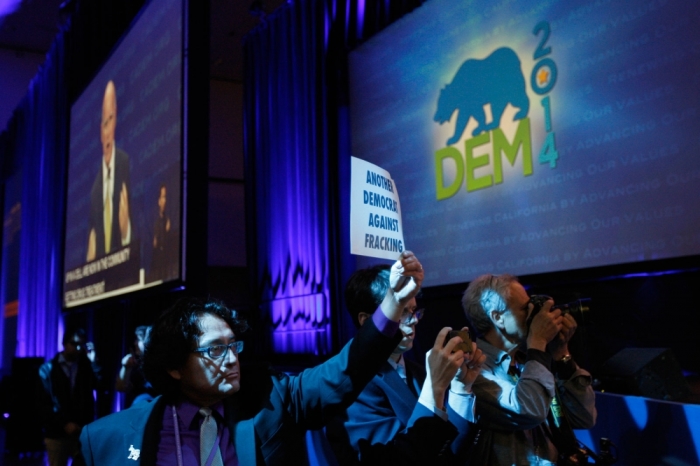Analysis: Democrats Are Now the Party of Wall Street, And Liberals Think That Makes Them Moderate

Mitt Romney must be perplexed. As the Republican presidential nominee in 2012, he was wrong for America, liberals argued, because he was the wealthy Wall Street type. Today, however, liberals condemn Republican critics of Wall Street as "far right" while Democrats representing Wall Street are hailed as moderates.
The current intra-party war among Republicans pits "establishment" types against a new conservatism with many labels, including new populists, libertarian populists, reform conservatives, and reformocons, to name a few.
This war is, in part, about crony capitalism. The new conservatives criticize the establishment conservatives for being "in bed" with "big business." Companies receive government favors and in return their Republican supporters receive campaign donations.
Stop being "pro-big-business," the reformers say, and start being "pro-free-enterprise." Providing favors to certain companies, they point out, is not free-enterprise. A free-enterprise system treats all businesses the same. Government favors create market distortions. This benefits the rich and powerful to the detriment of the poor and middle class.
This most recent intra-Republican battle has centered around the little known Export-Import Bank, a government program that provides benefits to American companies that export their goods. The ostensible purpose of "Ex-Im" is to offset the export subsidies that other nations provide to their companies. The reformocons view it as "corporate welfare."
According to George Mason University's Mercatus Center, a libertarian-leaning economic research group, the largest beneficiaries are Boeing, General Electric, Bechtel, Applied Materials Inc., and Caterpillar.
This government cronyism fight was highlighted most recently in two Republican primaries: House Majority Leader Eric Cantor's loss to David Brat, a political newcomer and economics professor, in Virginia, and Mississippi Sen. Thad Cochran's near loss to Tea Party favorite Chris McDaniel.
In both cases, the incumbents, Cantor and Cochran, were in favor of Ex-Im and were supported heavily by business groups, such as the Chamber of Commerce. The day after Cantor lost, Boeing stock dropped 2.3 percent. Cantor's successor, Rep. Kevin McCarthy, R-Calif., said he would no longer support Ex-Im in his first interview after being elected House Majority Leader.
Are liberals, who hounded Republicans as the "party of Wall Street" in the 2012 election, celebrating these developments? Just the opposite. Brat and McDaniel are "far-right extremists," they say, while Cantor and Cochran are "moderate Republicans."
Sen. Chuck Schumer, D-N.Y., put it succinctly: "The tea party is moving the Republican Party so far to the right on important issues like the Export-Import Bank, that the business community is now farther from the Republican Party and closer to Democrats."
In an added dose of irony, Wall Street now favors the leading Democrat, Hillary Clinton, over the leading Republicans, Ted Cruz or Rand Paul, in the 2016 presidential race. In an April article for Politico, Ben White and Maggie Haberman interviewed a number of Wall Street executives and most said they would prefer Clinton over Cruz or Paul.
Democrats have also recently been the most vocal supporters of Ex-Im. In a June 29 interview on Meet the Press, former President Bill Clinton gave the program his strong endorsement and criticized the Republicans who oppose it.
Some liberals are embracing the fact that Democrats are now becoming the party of Wall Street. Michael Lind, founder of the New America Foundation, a liberal think tank, celebrated this development in a June 15 article for Politico called, "Why Big Business Fears the Tea Party: Dave Brat and his ilk are driving corporate America into the Democrats' loving arms."
To the business community, Lind wrote, the Republican Party's new populists are "downright terrifying" and they "ought to frighten the rest of us, too."
The Republican Party may see some of their corporate sponsors switch their support to the Democrats if the reform conservatives continue to gain ground. The reformocons, however, are calculating that as the Democrats become the party of both big government and big business, Republicans can gain the support of the lower to middle income voters that comprise the bulk of the electorate.





























